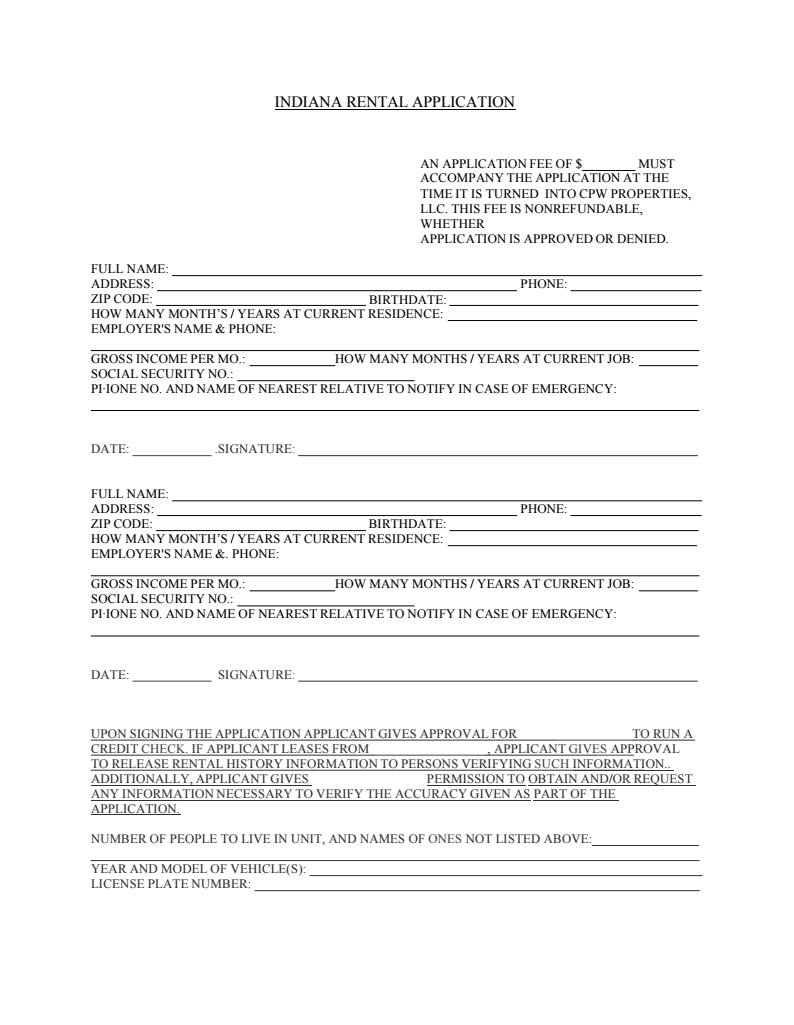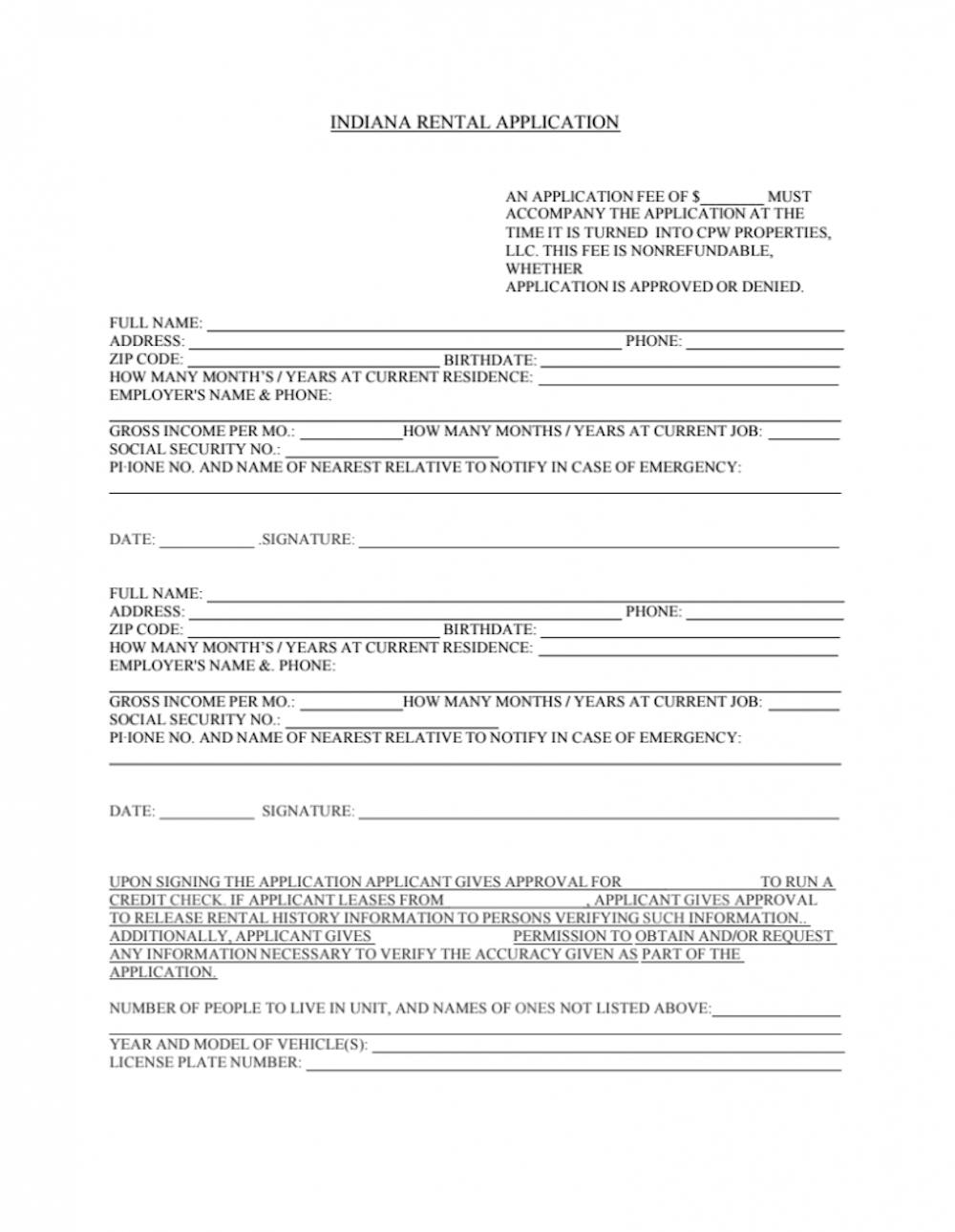Renting an apartment can be stressful and taxing on college students.
Molly Peterson, an assistant for financial leasing agreements and former landlord, said proper planning and research are necessary to rent an apartment that fits students' needs and budgets, and with the summer approaching, it may be time for some students to look for housing.
“You’re not with your parents; you might be paying to live by yourself now. It’s a scary thing, but it’s doable if you go about it the right way,” Peterson said. “No matter where you’re planning on living, there’s always going to be certain things to keep in mind before you make any decisions or sign any papers.”
If you’re looking to rent in Muncie, the city averages a monthly rent of $741 for its 2,646 units, according to a recent study by Tikijan Associates.
And if you’re curious about the renting process, Peterson offers guidance and helpful tips to make renting a living space easy and stress-free.
Getting started
Before you can rent an apartment, you’ll need to search for spaces that are within your budget and fit the kind of needs you have.
“If you’re single and you’re planning to live by yourself, don’t run out and sign up for a four-bedroom apartment,” Peterson said.
Likewise, if you’re in a large group of interested renters, Peterson said to beware of cramming yourselves into the space. Especially when leasing an apartment, it’s important to ask the landlord about the maximum occupancy to avoid getting fined or evicted.
“Before you go out and look at spaces in person, the Internet is a good place to start to see what’s out there,” Peterson said. “Information about amenities and renting regulations are usually easy to find online. I would definitely suggest starting in front of a computer.”
Peterson also suggests searching social media sites, as some leasers have deals or open houses going on.
TIP: Although it’s not so commonly used, you can sometimes find ads for apartments being offered by private landlords who don’t post as much online. However, be cautious of scams. Don’t give out personal information online until you’ve spoken with the landlord and understand any agreements.
After you’ve gotten a feel for some spaces you like online, Peterson said driving or walking around the intended area is a must.
“Get a feel for the area,” Peterson said. “The pictures online are nice, but you’ve got to feel it out in real life, too.”
If you feel good about the area, set up an appointment to meet the landlord and view the apartment or house you want to look at. Bring a pen and paper with you, and consider taking pictures of the different spaces if you have permission.
“You won’t remember every place you’ve stopped at,” Peterson said. “Take some notes, and make sure you ask specific questions about the area, the lease, payments — everything. Don’t forget to get contact information from the landlord, and don’t be afraid to ask about how many others are also interested in the space, too.”
TIP: Don’t procrastinate. Apartments can go quickly, and if you find the apartment you want, contact the landlord to begin the paperwork as soon as you can.
Applying
Most landlords will require you to provide evidence such as pay stubs and verification of employment, Peterson said, and some landlords may even ask for a complete employment history.
“Prepare your documents ahead of time to show the landlord anything they might need from you,” Peterson said. “If you’re renting with roommates, make sure they have all those documents, too. It’s going to be important that the landlord has a good idea for your abilities to make payments, so don’t delay the process over a paperwork mess.”
For most college students who likely have little credit history, Peterson said landlords are usually willing to allow a co-signer. A co-signer is a parent or other relative who signs an agreement stating they can afford to, and are willing to, cover your rent in the event that you cannot.
“Co-signing is going to be a must for a large majority of college renters,” Peterson said. “It’s a really good safeguard in the event that you can’t make your payment on time, so just be sure to have that conversation with your parents before signing.”
Along with other paperwork, Peterson said to be sure to bring a form of identification, former rental history, your check book, your social security number, proof of car insurance and your vehicle registration.
“Don’t forget about your car,” Peterson said. “If parking is available, information about your vehicle will be required."
Signing the lease
When it comes time to sign the lease, read the entire lease before you sign it. Make sure that all terms and conditions are exactly what you were told when you initially met with the landlord about the apartment. If you are unsure about something, ask for clarification, Peterson said.
“It’s the big, fun moment, but it’s also a crucial one that you’re going to need to be ready for,” Peterson said.
Before signing, Peterson advises walking through the house or apartment with the landlord to make sure nothing has changed since you were last there.
“Check the faucets, flush some toilets, look up down and around,” Peterson said “If anything looks wrong or out of place, don’t sign anything.”
If everything looks like it’s in place, Peterson said, sign the lease, but make sure you get a copy of everything you sign. Landlords will often create their own documents, while others will use a standard template. While wrapping up, make sure you have current contact information for the landlord, as you’ll likely have a reason in the future to contact them.
“Be nice, smile and keep the best relationship possible with the landlord,” Peterson said. “And don’t forget — if you break the contract or trash the place, you’ll probably want to have a good relationship with the landlord before the conversation takes place.”
Peterson advised to keep track of payments and to always be sure the space is kept in good condition, as the landlord may ask to stop by from time to time.





